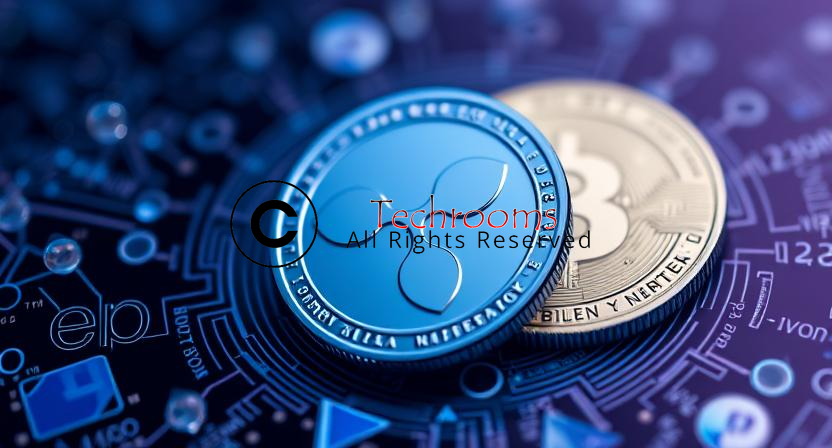A significant shift in cryptocurrency regulation is underway as the SEC wraps up its long-standing legal engagement with Ripple, while policymakers are advocating for straightforward stablecoin regulations designed to reshape market oversight and enhance investor trust.
Key Points to Consider:
- The SEC's withdrawal from the Ripple case suggests a trend toward more streamlined regulatory practices.
- The push for stablecoin regulations aims to set uniform standards that simplify compliance and lower market confusion.
- These developments could cultivate a clearer landscape, encouraging greater participation and engagement from institutional investors.
- The evolving regulatory framework in the U.S. could serve as a model for international standards, prompting a reassessment of digital asset regulations globally.
The landscape of cryptocurrency regulation saw intensified activity this week, highlighted by two pivotal events in the U.S.: the SEC concluding its significant legal battle with Ripple concerning XRP and President Donald Trump advocating for established stablecoin regulations.
In addition, the U.S. Treasury Department lifted sanctions on the Ethereum mixer Tornado Cash, while Germany's BaFin stepped up its enforcement efforts against Ethena's USDe token. Meanwhile, Pakistan is actively considering the legalization of cryptocurrency as a means to promote economic growth.
These occurrences underscore the rapidly evolving global regulatory landscape as nations strive for clearer crypto regulations while balancing innovation and effective oversight.
SEC Closes Ripple Case, Influencing Crypto Regulation
The U.S. Securities and Exchange Commission (SEC) has officially concluded its extensive legal proceedings against Ripple, putting an end to the contentious issue of whether XRP qualifies as a security. Ripple's CEO, Brad Garlinghouse, published a statement on X that conveyed the importance of this resolution, confirming that XRP was not deemed a security.
Ripple's CEO Announcement
Ripple has consistently argued that XRP should not be classified as a security and has challenged the SEC's stringent enforcement actions, which the company believes have adversely affected XRP investors. Legal analysts view this case's resolution as a pivotal moment, potentially shifting regulatory perspectives towards cryptocurrencies.
Legal professional Seth Goertz, a partner at Dorsey & Whitney LLP and former federal prosecutor, remarked that this outcome is crucial in establishing legal clarity for the crypto domain, particularly regarding the classification of digital assets under securities laws.
Following the announcement, XRP saw a significant surge in its market value, positioning itself as the third-largest cryptocurrency by market capitalization, even outpacing major stablecoins like Tether. The resolution is anticipated to promote regulatory transparency and enhance investor confidence, especially for digital asset exchanges that previously navigated a legal gray area.
Daniel Stabile from Winston & Strawn LLP expressed that the SEC ending the case could indicate a shift toward legislative measures rather than litigation as the primary means of establishing clear guidelines for crypto markets.
Trump Advocates for Stablecoin Regulation and U.S. Crypto Leadership
In a recent address at the Digital Assets Summit in New York, Donald Trump called upon Congress to enact stablecoin regulations featuring "simple, common-sense rules." He also expressed his commitment to positioning the U.S. as a frontrunner in the global cryptocurrency arena.
This advocacy aligns with the industry's demands for clearer regulations, which would balance the need for innovation with financial stability. If ratified, such legislation could provide a clearer operational framework for stablecoins within the U.S. financial ecosystem, potentially drawing more institutional investors into the sector.
Treasury Lifts Sanctions on Tornado Cash, Yet Cautions Remain
In a notable policy shift, the U.S. Treasury has removed sanctions on Tornado Cash, an Ethereum-based mixer that had been previously targeted for allegedly aiding illegal transactions. This decision comes after a reevaluation of the financial sanctions applicable to decentralized platforms, especially as the crypto landscape continues to evolve.
While this change signals a more flexible stance from the Treasury, officials have underscored their commitment to combating financial crimes. The agency continues to express concerns regarding cyber threats, particularly those associated with state-sponsored hacking and money laundering operations linked to North Korea.
U.S. citizens and businesses are urged to exercise caution when interacting with digital asset services that could be misused for malicious activities. The revocation of sanctions indicates regulators may be adopting a more nuanced approach to decentralized finance (DeFi), recognizing both its inherent risks and its promising potential.
Germany Tightens Regulations on Ethena's USDe Token
In Europe, German financial authority BaFin has taken action against Ethena GmbH, freezing its asset reserves due to concerns about the approval process for its USDe token. BaFin suspects that Ethena GmbH is offering unregistered securities, including USDe and sUSDe tokens, without the necessary approval under the recent Markets in Crypto-Assets (MiCA) regulations.
This crackdown on Ethena underscores the intensifying regulatory pressure in the European Union, as authorities enforce the newly implemented MiCA framework. The evolving oversight landscape poses compliance challenges for other crypto companies, which may also need to revisit their operational strategies to align with MiCA guidelines.
Pakistan Considers Legalizing Cryptocurrency for Economic Growth
In stark contrast to tightening regulations elsewhere, Pakistan is exploring the possibility of legalizing cryptocurrency trading to attract international investment and drive economic advancement. Bilal bin Saqib, the chief advisor to Pakistan’s finance minister for digital assets, noted the nation’s ambition to utilize its young, tech-savvy demographic to establish itself as a Web3 hub.
With around 60% of its population under the age of 30, Pakistan views cryptocurrency as a prospective avenue for financial inclusion and technological progress. If successful in formulating a regulatory framework for cryptocurrencies, Pakistan could emerge as a significant player in the digital asset domain, particularly within South Asia. However, questions remain about how the government will navigate the delicate balance between regulation and innovation.
The Future of Global Crypto Regulation: A Delicate Balance
Recent developments highlight the intricate and often contradictory nature of global cryptocurrency regulation. The U.S. is beginning to form a more structured regulatory framework, while Europe amplifies enforcement actions. Concurrently, emerging markets such as Pakistan are considering adopting cryptocurrencies as a path toward economic growth.
As regulatory practices evolve, governments worldwide are starting to acknowledge the enduring role of crypto in the financial landscape. The challenge now lies in striking the right balance between oversight, innovation, and maintaining financial security.
Whether through stablecoin regulations, reevaluations of sanctions, or new frameworks for token approvals, the forthcoming months could significantly define the future trajectory of cryptocurrency.
Frequently Asked Questions (FAQs)
How will the SEC’s withdrawal affect crypto enforcement?
The SEC's withdrawal indicates a transition from strict litigation to the establishment of clear, consistent regulations, aimed at reducing enforcement burdens and creating a stable regulatory environment, thereby minimizing uncertainty for crypto operators.
What benefits can clear stablecoin regulations offer?
Defining stablecoin regulations can standardize market practices and lower compliance expenses. Clear guidelines can boost investor confidence and foster innovation by eliminating legal ambiguities that hinder institutional investment.
How might these changes influence global crypto standards?
Shifts in U.S. policy could set international benchmarks, prompting other countries to revamp their frameworks. A unified approach can enhance cross-border investments and harmonize digital asset conventions worldwide.
What impact could clearer crypto rules have on institutional investment?
Clearer regulations diminish legal risks and operational uncertainties, rendering the market more appealing to institutional players. Predictable oversight may encourage long-term investments and deepen overall market engagement.
What further changes can we expect in the crypto regulatory landscape?
We anticipate gradual updates as regulators refine their strategies through ongoing industry discussions. Future legislative measures will likely focus on major market participants while clarifying compliance standards for digital assets.




